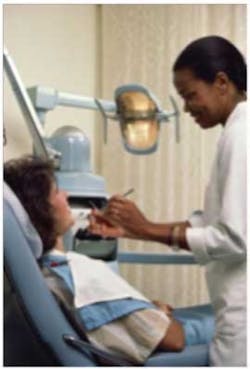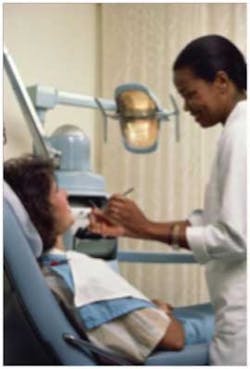Welcome to the premier issue of RDH eVillage FOCUS
Welcome to the premier issue of RDH eVillage FOCUS, dedicated to bringing you science-based information. We will attempt to distill research into “news you can use” in your clinical practice, in your community setting, with your students, or in other venues. We will discuss product and product categories, and products as appropriate.If you have topics you would like addressed, please let us know. As well, we encourage healthy debate, so if you have an opinion based on research that is different than one expressed here, let us know that as well.
We will begin discussion on Evidence-Based Practice (EBP). The dental hygienist is a licensed professional who is responsible for making informed, evidence-based decisions and is accountable for his or her actions.(1) Clinical process involves the Dental Hygiene Process of Care, as referenced in the ADHA Standards For Clinical Dental Hygiene Practice.(2) When following this process of care, we perform, among other things, treatment planning. Treatment planning is the organization of goals and outcomes based on patient needs, expectations, values, and current scientific evidence.(2) EBP is a focused integration of the best available evidence, together with clinical expertise. It enables health practitioners from all disciplines to address health-care questions with an evaluative and qualitative approach. EBP allows the clinician to assess current and past research, clinical guidelines, and other information resources in order to identify pertinent literature while critically appraising high-quality and low-quality findings. It takes about 17 years for research to be implemented into daily clinical practice.(3)Sincerely,
Maria Perno Goldie, RDH, MS
Editorial Director, RDH eVillage FOCUS
References
1. Darby ML,Walsh MM. Dental Hygiene Theory and Practice. 2nd ed. St. Louis, Mo: Saunders; 2003:2, 9, 314-217.
2. www.adha.org/downloads/adha_standards08.pdf.
3. Balas E. Information Systems Can Prevent Errors and Improve Quality. J Am Med Inform Assoc. 2001 Jul–Aug; 8(4): 398–399.


